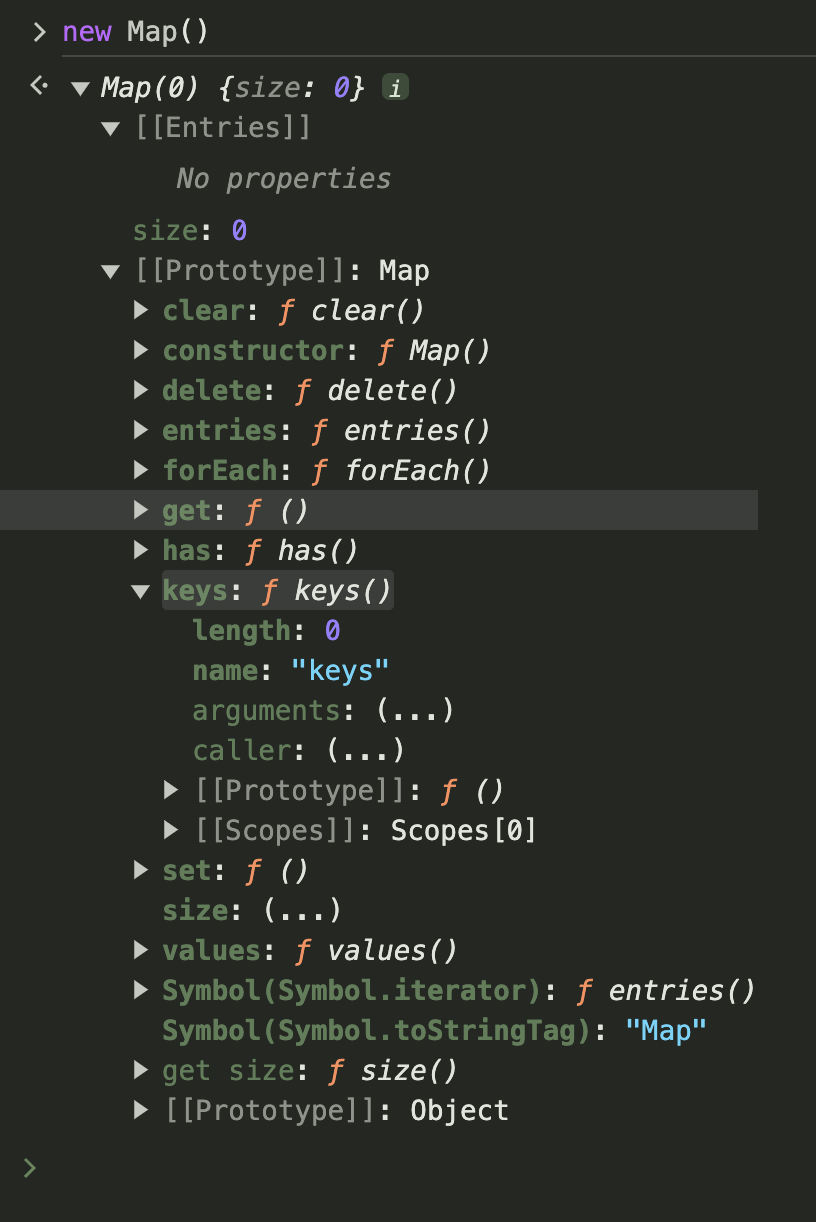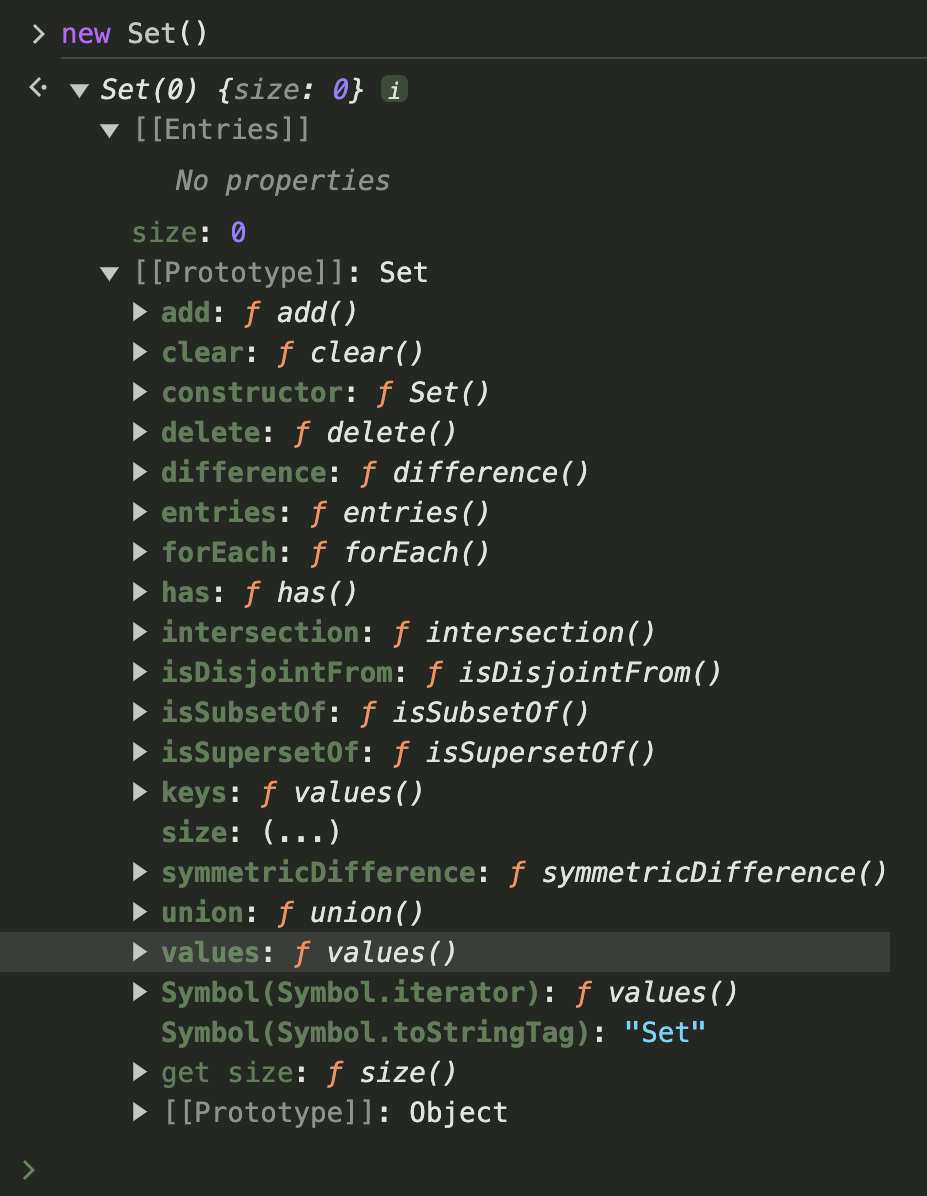
Iterables in JavaScript

Iterables in JavaScript
What are Iterables?
- Iterables are data structures on which for...of loop can be used, Loop-ables,
- JavaScript provides such data structures like array, map, sets, strings etc,
- There's a method (function) named [Symbol.iterator] which enables looping over the data structure, and also defines how the looping will work on the structure,
- The beauty is: you can add this method on data structure and make it loop-able/iterable



Iterables in JavaScript
[Symbol.iterator]:
- The name of the property is [Symbol.iterator] (along with brackets []),
- Its a function (method), that returns an object, this object called "iterator",
- the object "iterator" needs to have a method in it named:
"next () {}", - the method should return an object which should be exactly like this:
{done:false, value:"value"}
OR
{ done: true }; - when done: true is returned the loop stops
[Symbol.iterator] = function() {
// for..of works only with the
// iterator object below, asking it for next values
return {
current: 0,
last: 10,
// next() is called on each iteration
// by the for..of loop
next() {
// it should return the value
// as an object {done:.., value :...}
if (this.current <= this.last) {
return { done: false, value: this.current++ };
} else {
return { done: true };
}
}
};
};
Iterables in JavaScript
Example:
Making a simple object iterable:
const range = {
from: 1,
to: 5,
[Symbol.iterator]() {
return {
current: this.from,
last: this.to,
next() {
if (this.current <= this.last) {
return { done: false, value: this.current++ };
} else {
return { done: true };
}
}
};
}
};
// now it works!
for (const num of range) {
console.log({num}); // 1, then 2, 3, 4, 5
}const range = {
from: 1,
to: 5,
}
// won't work!
for (const num of range) {
console.log({num});
}
Iterables in JavaScript
Example:
- When the loop runs, first of all it calls the "[Symbol.iterator]" method which returns the iterator object,
- the iterator object has the next() method
- in every loop, the loop calls the next method, and gives the value from the {done, value} object returned by next() method,
- the loop ends when next method return {done: true} object
// Different way of writing
const range = {
from: 1,
to: 5,
[Symbol.iterator]() {
this.current = this.from;
return this;
},
next() {
if (this.current <= this.to) {
return { done: false, value: this.current++ };
} else {
return { done: true };
}
}
};
for (let num of range) {
alert(num); // 1, then 2, 3, 4, 5
}
Iterables in JavaScript
Example:
- understand the for loop on the iterable
// Different way of writing
const range = {
from: 1,
to: 5,
[Symbol.iterator]() {
this.current = this.from;
return this;
},
next() {
if (this.current <= this.to) {
return { done: false, value: this.current++ };
} else {
return { done: true };
}
}
};
// Read the loop as:
for (let num = range[Symbol.iterator]().next()) {
alert(num); // 1, then 2, 3, 4, 5
}
Iterables in JavaScript
Calling an iterator explicitly:
- On iterable structures, you can directly call the [Symbol.iterator]() method,
- calling the method will return you the iterator object, which has the next() method on it,
- we can call the next method to get the next value in the loop
let str = "Hello";
// does the same as
// for (let char of str) alert(char);
let iterator = str[Symbol.iterator]();
while (true) {
let result = iterator.next();
if (result.done) break;
else console.log(result.value);
}
Iterables in JavaScript
Iterables and array-likes:
- Two official terms look similar, but are very different,
- Iterables are objects that implement the [Symbol.iterator] method, as described above.
Array-likes:
- Array-likes are objects that have indexes and length, so they look like arrays,
- But array-likes are not iterable/loop-able
- But an iterable may be not array-like. And vice versa an array-like may be not iterable,
const arrayLike = {
0: "Hello",
1: "World",
length: 2
};

Iterables in JavaScript
Array.from
- There’s a universal method Array.from
- takes an iterable or array-like value and makes a “real” Array from it.
- Then we can call array methods on it.
let arrayLike = {
0: "Hello",
1: "World",
length: 2
};
let arr = Array.from(arrayLike);
alert(arr.pop());